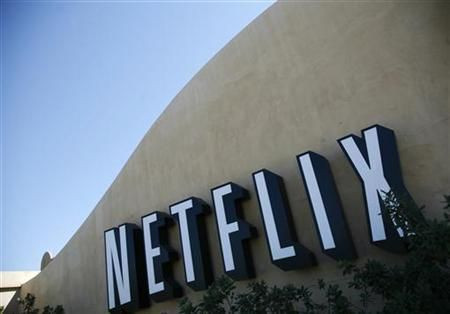Netflix, Wal-Mart Lawsuit: Wal-Mart Settles with Subscribers, Netflix Could go to Trial

Netflix said Thursday it would refuse to join Wal-Mart in the settlement of a class-action lawsuit involving more than 25 million current and former Netflix subscribers.
We believe this lawsuit is without merit, Steve Swasey, Netflix's vice president of corporate communications, told IBTimes by phone. We're going to defend it.
Late Tuesday evening, Netflix subscribers received an email in their inboxes telling them that Wal-Mart had agreed to pay a $27.25 million -- in cash and gift cards -- settlement to subscribers without admitting any wrongdoing.
The lawsuit, filed in 2009, alleged that Wal-Mart and Netflix entered into an illegal agreement in 2005 that violated antitrust laws. Under the agreement, the lawsuit alleged, Netflix agreed it would not sell new DVDs and Wal-Mart would not provide DVDs for rent online.
Settlement from one side withstanding, a sizable amount of the resulting money will end up in the pockets of the five lawyers representing the subscribers. The settlement also raises the issue of whether gift cards, which Wal-Mart plans to include in the settlement, are a legitimate form of compensation.
Wal-Mart did not respond to a request for comment.
A judge in federal court tentatively approved the settlement in September. The money from the settlement is planned to be distributed after a final approval hearing on March 14. All subscribers who joined Netflix at any time from May 19, 2005, to Sept. 2, 2011, are eligible to receive part of the settlement. They must file a claim by Feb. 14.
The legal team has requested as much as 25 percent of the settlement, said Joseph Tabacco, one of the five in the class counsel. That amounts to about $6.81 million. Add $1.7 million for legal fees, and the amount subtracted from the original pool quickly grows.
The likely end math: Around $18 million to $19 million will remain for more than 25 million subscribers. That's less than $1 per person, if every subscriber of Netflix's original estimate files a claim.
That's much of the problem Netflix has with the deal. It has called Wal-Mart's deal a marketing ploy that will end up costing very little per subscriber.
But Tabacco said 100 percent filing is unlikely. He pointed to CD price-fixing litigation filed against the five biggest music companies that was settled in 2002. Only 4 to 5 percent of the base, he said, filed a claim to receive part of the settlement.
A lot of people have the opportunity, Tabacco said in a phone interview. Typically, it's not a majority of the class that steps forward.
He also disputed Netflix's suggestion that Wal-Mart's move was a marketing ploy, saying consumers and beneficiaries of the settlement would be able to have a choice.
There's a lot of convenience with a gift card, and I think it helps the consumer, Tabacco said. Sure, it's a benefit to Wal-Mart, but it's not strictly that if people have the option. We think the settlement by its structure affords consumers that choice.
The road to this lawsuit began in 2005, when Netflix and Wal-Mart entered into their original promotional agreement. Wal-Mart announced it would discontinue its floundering Wal-Mart DVD Rentals service, while offering customers the option to subscribe to Netflix at their current Wal-Mart rate for one year, according to a release from May 19 of that year.
Netflix, in turn, announced it would promote Wal-Mart's online movie sales.
This agreement bolsters both Netflix's leadership in DVD movie rentals and Wal-Mart's strong movie sales business, while providing customers even more choices and convenience, Netflix CEO Reed Hastings said in the release.
In 2009, a small number of Netflix subscribers filed a lawsuit against the two companies alleging collusion. In 2010, a California judge certified the group's lawsuit as a class action, which meant every Netflix subscriber had become involved.
Netflix does not plan to settle. The next step, then, would be a trial, currently scheduled to begin in January. Tabacco said that if the plaintiffs are successful, as he expects, Netflix could be on the hook for several hundreds of millions of dollars.
© Copyright IBTimes 2025. All rights reserved.





















